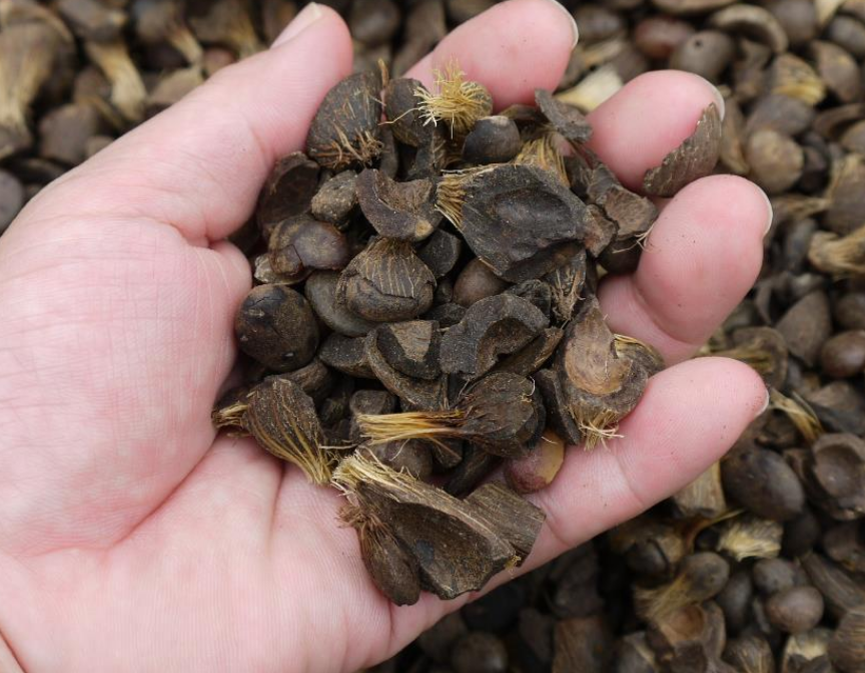
Palm Oil Shell is a potential biomass that can be processed into downstream products. In Indonesia, the potential for palm shell production reaches 11 million tons per year, but around 3.5 million tons per year are still exported in the form of semi-finished commodities.
The quantity used for palm shells will be more when compared to coal. This is because the calorific value of palm shells is lower than that of coal.
Palm shell or palm kernel shell has a high calorific value, ranging from 4000-5000 Kcal/kg. Meanwhile, coal has a calorific value of 5000-6000 Kcal/kg.
This difference in caloric value affects the quantity used in combustion.
Palm Oil Shell is a byproduct of the palm oil industry. It is the outer shell of the oil palm fruit, which is removed during the milling process to extract the palm oil. Palm Oil Shell is a fibrous material and has various uses in different industries.
One of the primary uses of Palm Oil Shell is as a fuel source. It is an excellent substitute for coal and can be used to generate electricity in power plants. The high calorific value of Palm Oil Shell makes it an ideal fuel for power generation. The use of Palm Oil Shell as a fuel source also helps reduce greenhouse gas emissions, as it is a renewable and sustainable source of energy.
Apart from being used as a fuel source, Palm Oil Shell also has various other applications. It is used as a raw material in the production of activated carbon, which is used in water treatment and air purification. Palm Oil Shell-based activated carbon is highly effective in removing impurities from water and air.
Palm Oil Shell is also used as a soil amendment. It is an excellent source of organic matter and helps improve soil fertility. The high carbon content of Palm Oil Shell helps improve soil structure and water-holding capacity. The use of Palm Oil Shell as a soil amendment also helps reduce soil erosion and promotes plant growth.
Another use of Palm Oil Shell is in the production of biochar. Biochar is a form of charcoal that is produced by heating organic material, such as Palm Oil Shell, in the absence of oxygen. Biochar has several benefits, including improving soil fertility, sequestering carbon, and reducing greenhouse gas emissions.
Palm Oil Shell is also used in the production of animal feed. It is rich in fiber and is an excellent source of energy for livestock. The use of Palm Oil Shell as an animal feed helps reduce the reliance on traditional feed sources, such as corn and soybean meal.
In conclusion, Palm Oil Shell is a versatile byproduct of the palm oil industry. It has various uses in different industries, including as a fuel source, raw material for activated carbon production, soil amendment, biochar production, and animal feed. The use of Palm Oil Shell in these industries helps promote sustainability and reduce greenhouse gas emissions.